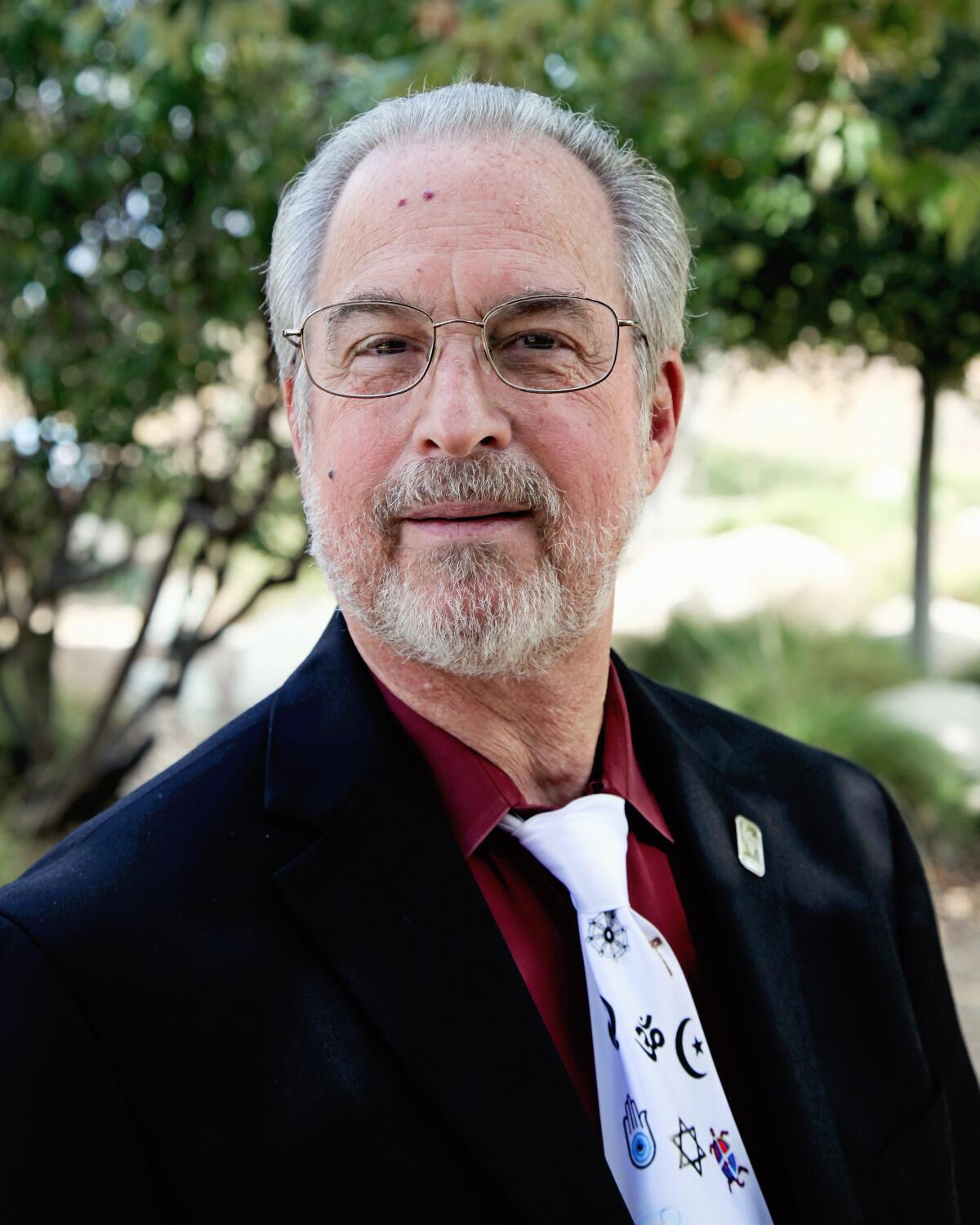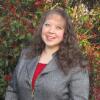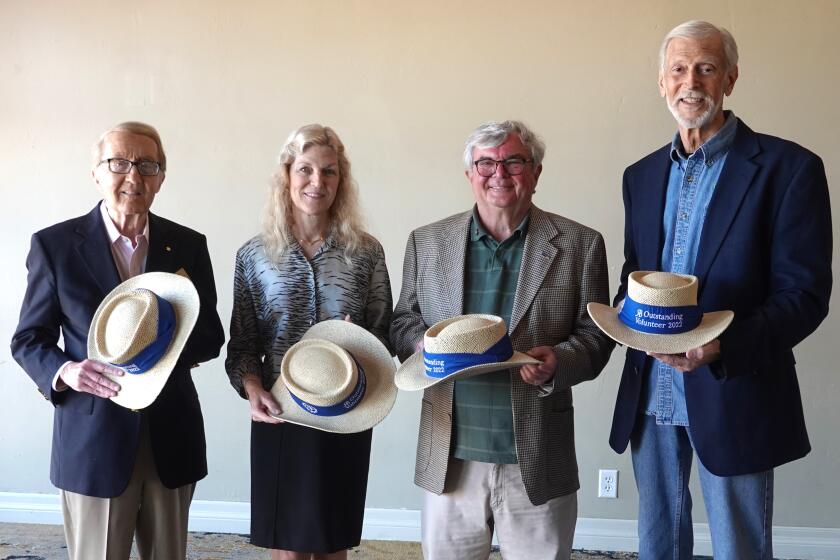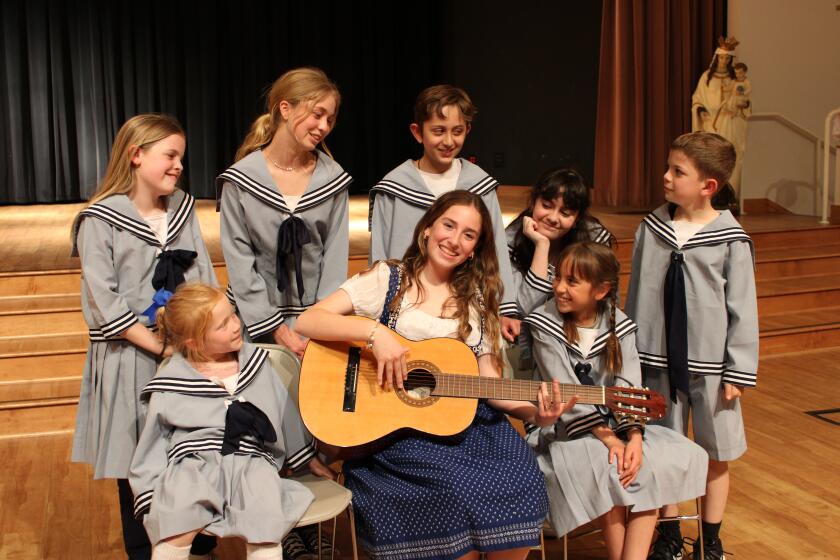Poway author’s 20th book focuses on ‘Ignoring the No’

Stephen Albert uses his life experiences to inspire others to pursue their dreams
If Stephen Albert had heeded the advice of his high school guidance counselor — that he was not college material — he would have never had a decades-long career as an architect or earned four academic degrees.
Albert, then 16, had a B-minus average at the school in his hometown of Philadelphia. The counselor’s view was that college was only for those with an A or A-plus average, he said.
But with a family that insisted he was going to attend college, Albert pursued his dreams even harder, partially to prove his counselor wrong.
“I felt bad for the people to whom the counselor said they can’t do it and they gave up,” the 75-year-old Poway resident said. “I was lucky. My family had not gone to college. My father had not finished high school. But I remember them budgeting each week, putting dollars away for me to go to college.
“It was not a question,” he said. “It was I will go ... to college.”
Albert not only became an architect, but an ordained minister.
As the Rev. Stephen Albert he is the organizer and director of the World Interfaith Network, a database of interfaith groups and diverse faith traditions. He and his wife, the Rev. Abigail Albert, co-founded the All Faith Center in Poway, where the couple moved in 2003 due to his architecture work.
They are now semi-retired from their church work, but remain active long-time leaders in the region’s interfaith community.
Knowing not everyone has the support system he had growing up, Albert, has written a book to encourage others to pursue their dreams, no matter how far-fetched some might say they are. It is the 20th he has penned.

“Ignore the ‘NO!’ Empower Yourself to Do the Impossible” has just become available on Amazon at $11.95 for a paperback. A Kindle version is also available.
A large portion of the book is focused on all the times throughout his life that Albert was told no, but ignored the naysayers. But he also incorporates examples of others, such as the Wright brothers and Benjamin Franklin.
“When the Wright brothers had their airplane at Kitty Hawk, people were saying they can’t do this. It weighs so much. You can’t be a bird,” Albert said. “Even after their flight, it took five years after for the Patent Office to say they did it.
“People put down others whose ideas sound far-fetched,” he said. “In their minds there are limits.”
Knowing in his heart that architecture was “where I was supposed to be,” Albert said he was driven to work harder. He earned a bachelor’s degree in engineering from Penn State, a bachelor’s in architecture from Drexel University, a master’s in psychology from the University of Colorado and a doctorate in religious studies from Emerson Theological Institute.
His nearly four-decade career as an architect took him throughout the United States and to many countries, including Japan, England, Germany, Italy and Canada. Much of his work was designing stores for companies such as Swensen’s Ice Cream and MicroAge Computer Stores.
When he started designing MicroAge’s stores in 1981, Albert said most people, including himself, knew nothing about computers.
“When I started for MicroAge I had never worked with a computer before, yet I designed the environment for their computer tables and demonstration area for their salesmen,” he said.
The development of computers for work and personal use is an example of how someone had a dream and did not let challenges deter them, he said.
“People often want to do something, but have no vocabulary for it,” he said. “In the early 1800s, someone said I want to ... ride in a car not needing a horse, but they had no vocabulary in the early 1800s for ‘car.’ It was not until the late 1890s they were made
“I wonder what people will develop 10 to 15 years from now, that today they can’t even consider because they have no way to talk about it,” he said.
Albert does not write just about his academic and career experiences as examples of “ignoring the no.”
“My whole life has been filled with situations of people telling me not to do something, that it would never happen, to forget it,” Albert said. “My inner desire was to make something work. I want to help people to whom others say no to not believe it.”
His first was at 15, when a couple years after his bar mitzvah Albert went to his rabbi to express an interest in studying Kabbalah, a mystical form of Judaism. The reasoning for the “no” was that he had to be at least 40 years old. The logic of that was based on tradition established thousands of years earlier.
“In ancient times, people lived to 50. So they did their business, had a family, retired and had nothing left to do. So they would get more into their spiritual side before they die,” he said.
So Albert left the synagogue and learned about Kabbalah on his own, which led him down a path toward becoming an interfaith minister.
In 2003, at age 55, Albert experienced a major stroke that greatly affected the mobility on his entire left side. Doctors told him that whatever physical abilities he regained within six months would be as good as he would recover. Albert said he was not going to let that deter him.
“I was still getting better one year, 18 months, two years later,” he said. “I was better than they expected after six months.
“My first physical therapist after I got into rehab said I have a 10 percent chance of having another stroke,” Albert said. “With my garbled voice I said, ‘Then there is a 90 percent chance I will never have another.’ He said, ‘I have never considered that before. It has changed the way I have talked with stroke patients for 15 years.’”
Albert said this is just one example of how he has looked at the positive versus negative.
He wrote his first book in 1986. Many of his works have been on interfaith topics. Others delve into the subjects he has taught at colleges over 44 years. This included the University of Phoenix where he has taught subjects ranging from comparative religions to critical thinking and public speaking.
Get the Pomerado News in your inbox weekly
Top headlines from Poway, Rancho Bernardo and 4S Ranch, every Thursday for free.
You may occasionally receive promotional content from the Pomerado News.





